The Tarform ‘Luna’ Motorcycle Is An Electric Cafe Racer
The retro-styled bike is brimming with modern tech and sustainably-made materials.
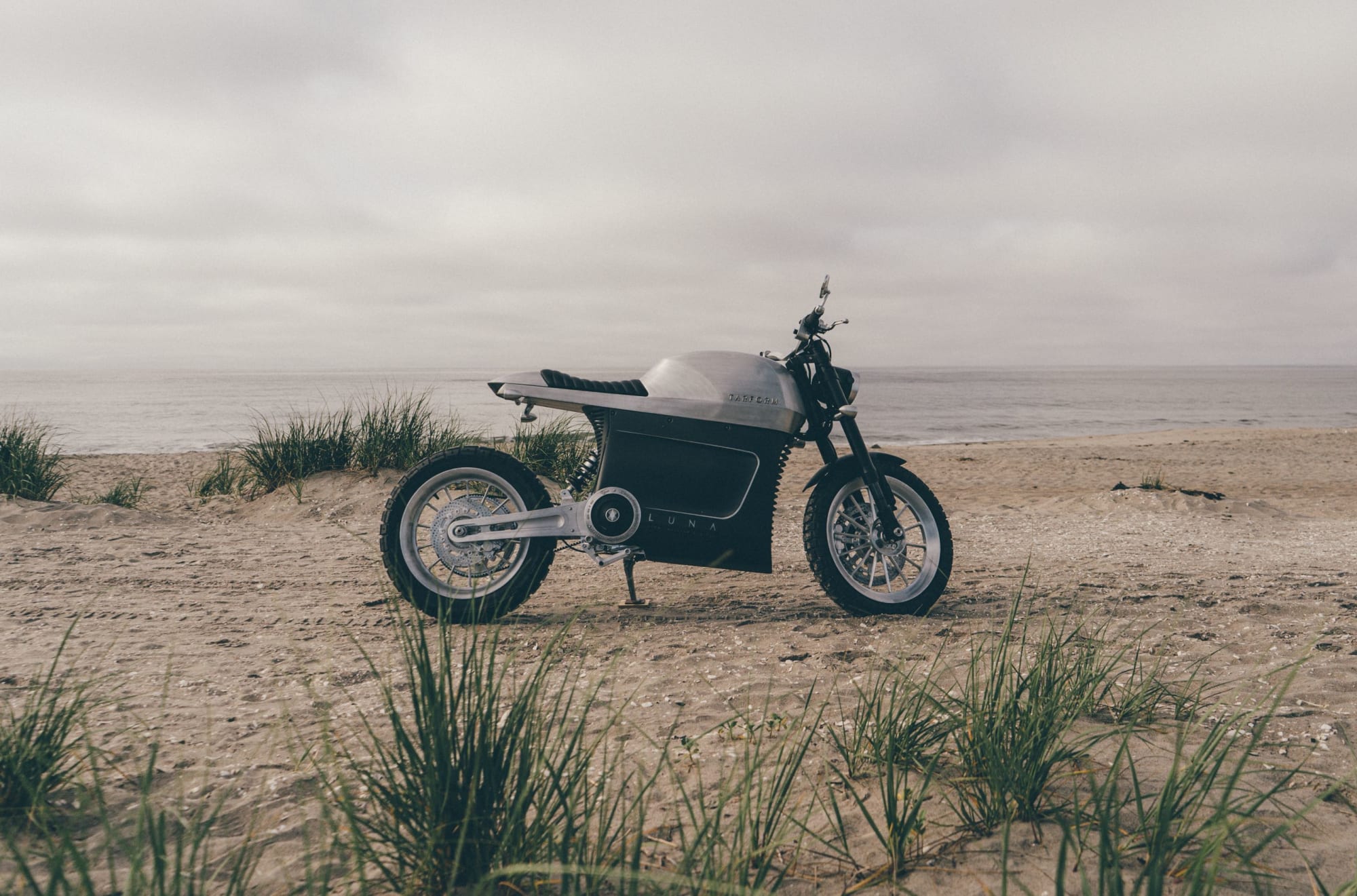
Brooklyn-based startup Tarform is re-launching its striking “Luna” electric motorcycle built with sustainable materials, 3D-printed parts and retro cafe racer style.
The first models was supposed to arrive in late-2019 following an initial reveal in 2018, but ambitious technological goals forced production back to present day. Now the Luna’s full specs and pricing details have been announced.
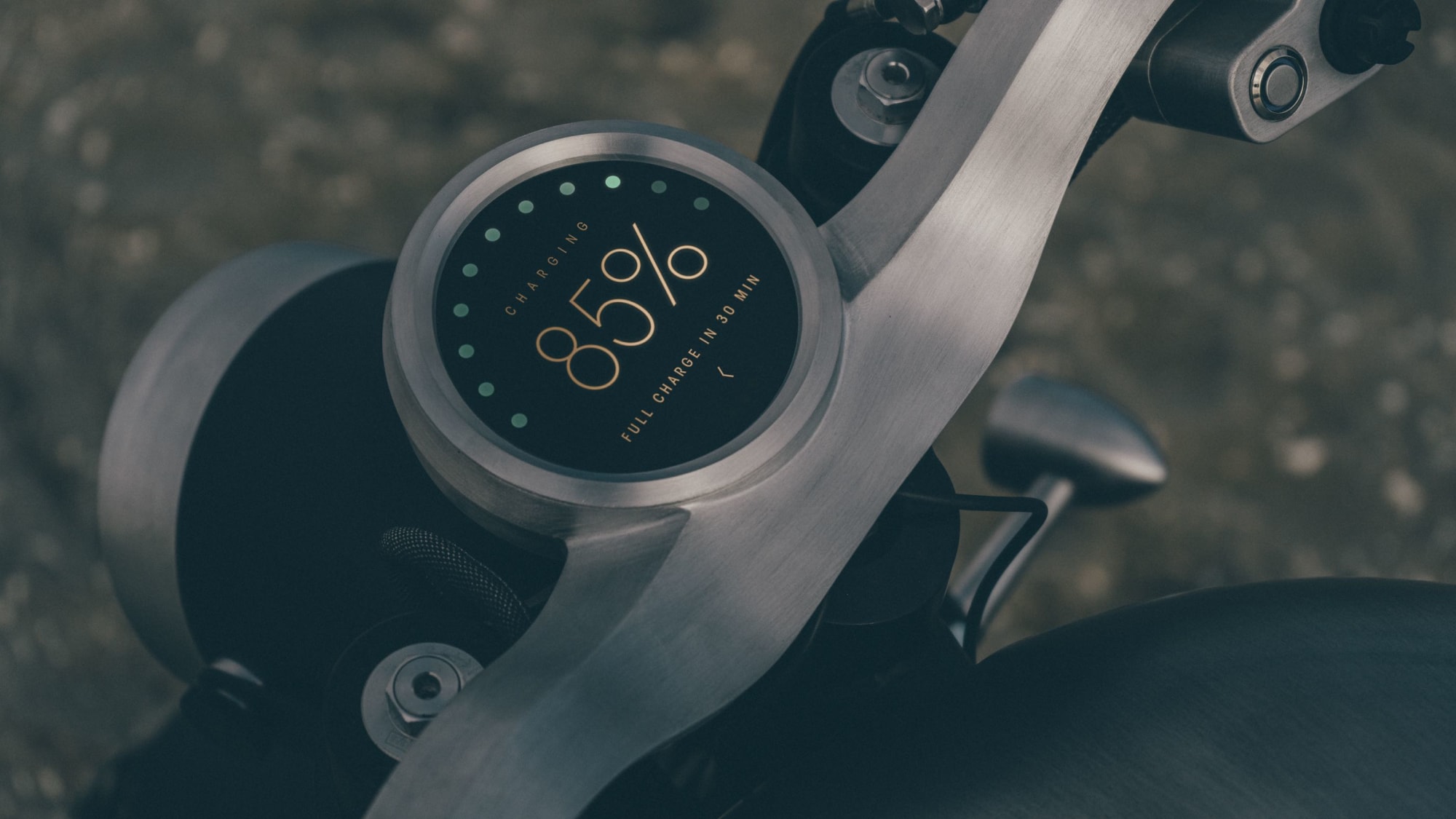
New Atlas reports that power comes from a 55-horsepower PMAC electric motor that runs off of a 10 kWh lithium ion battery pack with an integrated 3.3-kW charger and a regenerative braking system. The Luna will hit 60 mph in 3.8 seconds, top out at 95 mph, and go for 120 miles on a single charge.

Performance, while ample, isn’t groundbreaking, especially when compared to competitors like the Zero SR/S or even the Harley-Davidson LiveWire. But neither of those e-bikes have 3D-printed components made from recyclable materials, a hand-formed aluminum body, or a “vegan leather” seat pad. The Luna’s platform also allows owners to upgrade components from Tarform as they become available.

The Luna’s other big selling point is on-board tech. Integrated sensors and AI to help keep the rider better informed on the road by sending vibrations through the seat, while a rear-facing camera replaces traditional side mirrors.
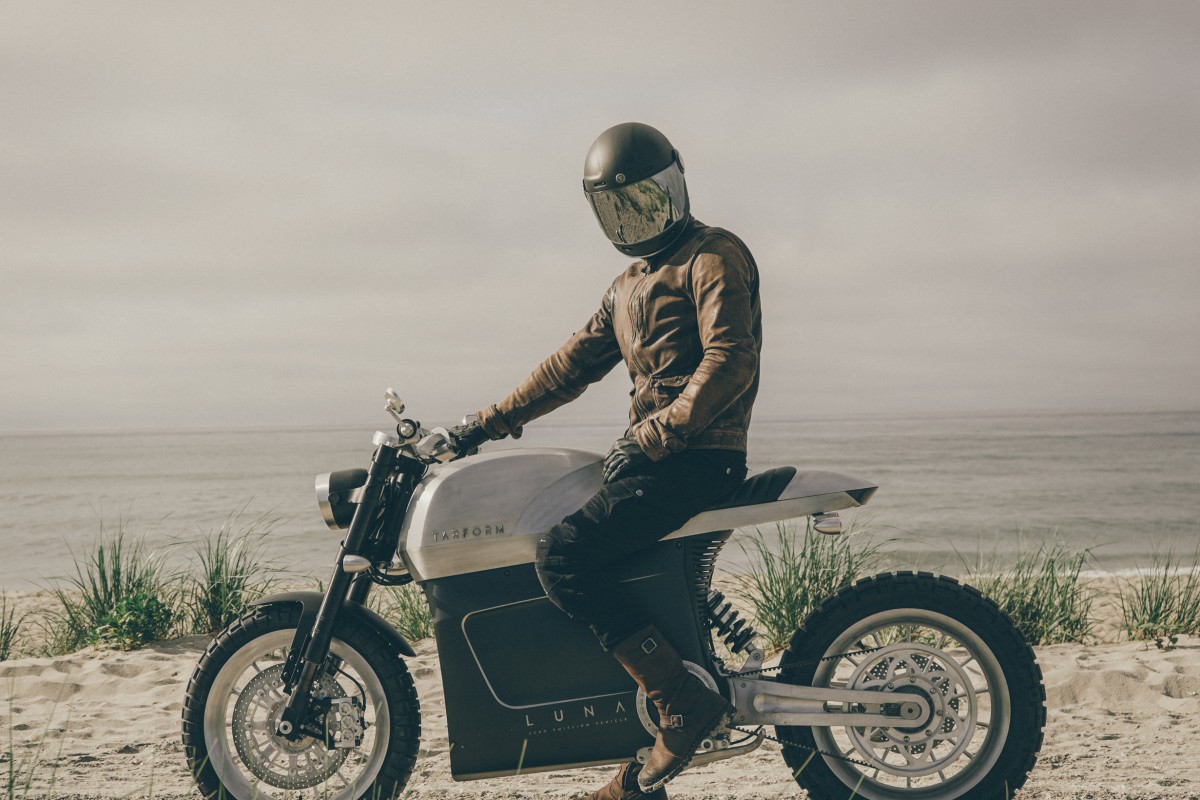
There’s also app integration within the bike itself, allowing for notifications of charging, stats and scheduled maintenance right on your phone, as well as a “Sonic Aura Acoustic Sound System” that promises to improve riders’ awareness of pedestrians.
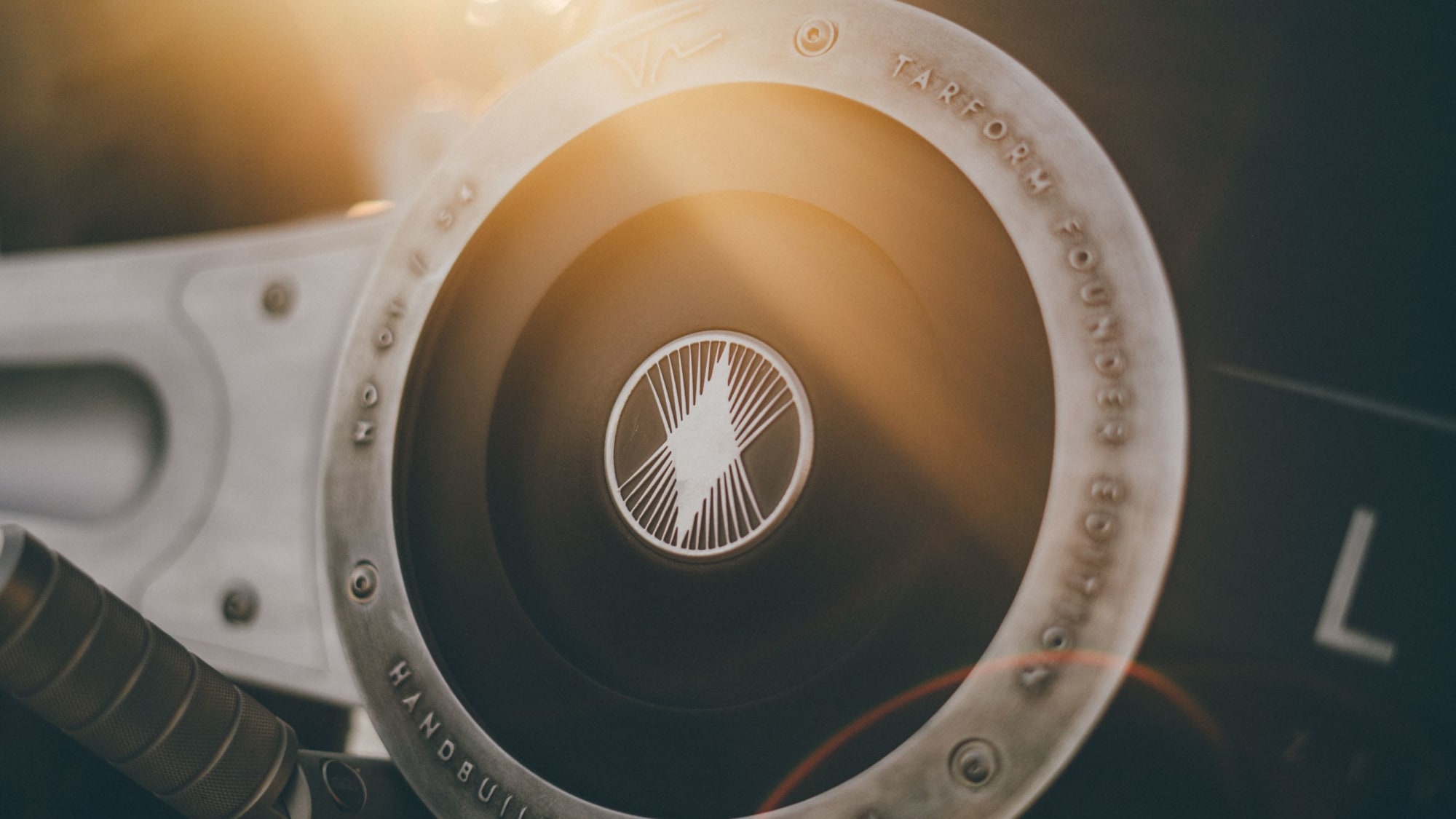
Priced at a steep $24,000, the Tarform Luna is definitely aimed at well-heeled riders who want a futuristic motorcycling experience. Note that the model pictured here is the one-of-54 Founders Edition, which features an Ohlins front and rear suspension, performance brakes, and an undisclosed price.
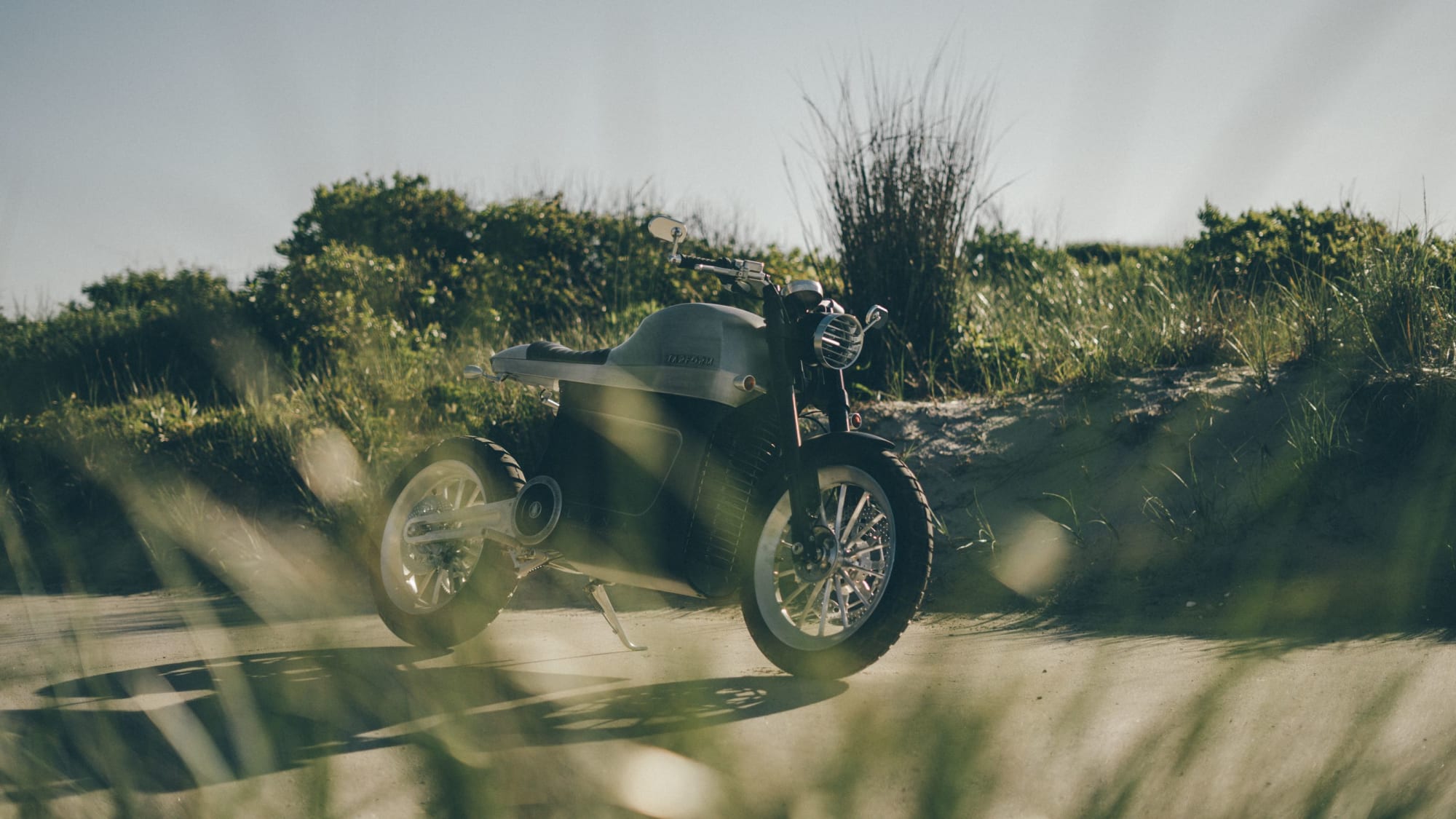
The Tarform Luna can be reserved for $500 before the first deliveries are made in 2021.
